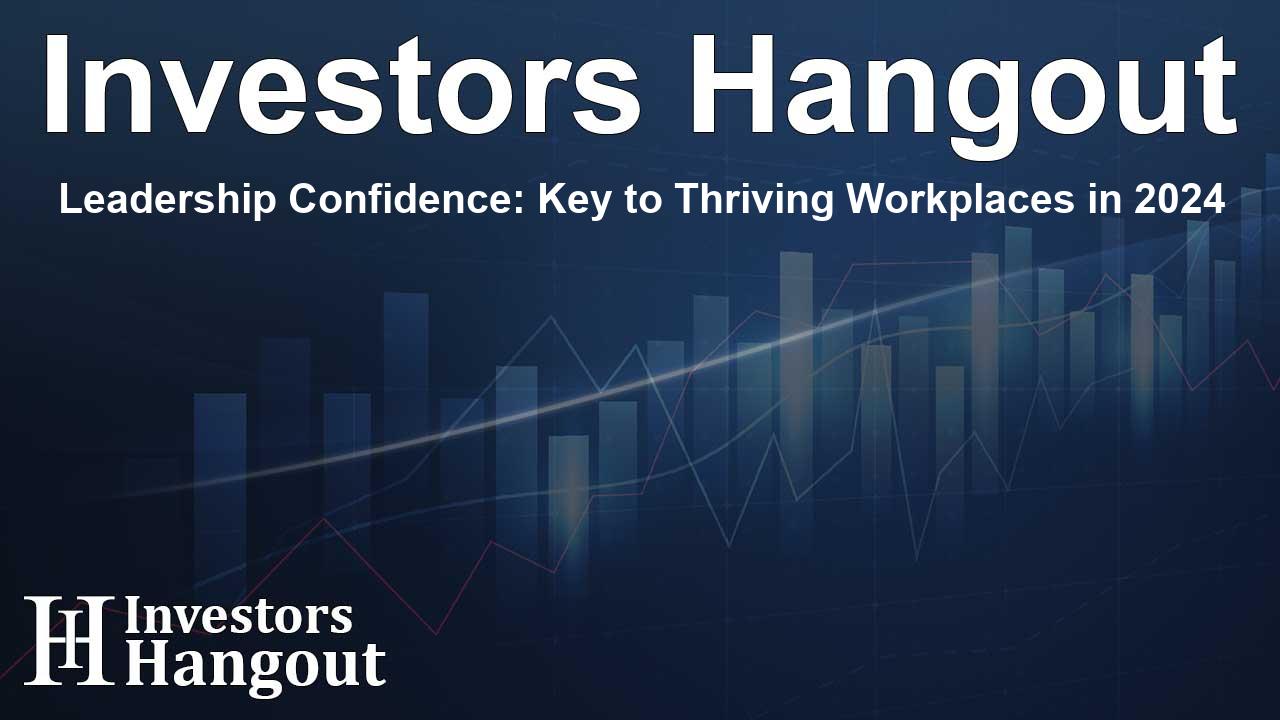Leadership Confidence: Key to Thriving Workplaces in 2024

Leadership Confidence: The Pulse of Thriving Workplaces
Recent findings have revealed a concerning trend: only 51% of employees are enthusiastic about utilizing AI to enhance their work experience, while an even smaller fraction, 45%, believe their employers will implement AI in ways that will be beneficial to them. This indicates a significant gap that global talent leaders must address to foster better workplace environments.
World’s Best Workplaces: A Model for Leadership Confidence
A recent market study conducted by Great Place To Work analyzed responses from nearly 43,000 employees and identified critical challenges leaders must navigate in today's fast-evolving work landscape. The companies featured on the Fortune World’s Best Workplaces List™ not only recognize the importance of leadership confidence but actively implement practices that cultivate it. These 25 organizations outperform the average workplace, showcasing best practices that enhance employee trust in leadership.
Recognizing the Leading Organizations
Among the standout companies on this prestigious list are:
- DHL Express
- Hilton
- AbbVie
- Cisco
- Hilti
- Accenture
- Teleperformance
- Stryker
- Cadence
- Salesforce
- Agilent Technologies
- SC Johnson
- MetLife
- Experian
- SAP
- Specsavers
- Admiral Group
- Nvidia
- Marriott
- Trek Bicycle
- Dow
- ServiceNow
- GFT
- Chiesi
The Impact of Leadership on AI Adoption
The link between employee confidence in leadership and their willingness to engage in innovation is significant. Those who expressed trust in their leaders were four times more likely to participate meaningfully in workplace innovation efforts. This enthusiastic engagement is crucial for enhancing AI adoption and bolstering resilience in the face of challenges.
Creating Opportunities for Innovation
Furthermore, when employees report having ample opportunities to innovate, they are three times more likely to be excited about using AI technologies. Such excitement can lead to better outcomes for companies, including improved productivity and morale.
Key Insights from Employee Surveys
Great Place To Work's analysis highlighted key employee experiences that foster trust in leadership. For instance, while less than half of employees in typical workplaces believe promotions are awarded fairly, a whopping three in four employees at the World’s Best Workplaces report fair promotion practices. This disparity illustrates the effectiveness of the leadership approaches taken by the best companies.
Michael C. Bush, CEO of Great Place To Work, emphasizes the substantial impact that these organizations can have on the global workforce. He states, "As global companies, these employers have an incredible impact on our world. We are proud to recognize these companies for their dedication to creating better workplaces for every employee — and by extension, making the world a better place for all of us."
In a similar vein, Alyson Shontel, editor-in-chief of Fortune, noted that the global list was established through a rigorous process, ensuring that the featured companies are genuinely valued by their employees. This trust is a vital determinant in their productivity and success.
Selections Based on Comprehensive Surveys
The list of top companies was meticulously curated through an analysis of over 7.4 million employee surveys collected from a diverse set of organizations globally. Only those that demonstrated excellence in creating a supportive and empowering workplace environment while gaining the respect and trust of their employees made the cut.
To maintain their status as the best, organizations must consistently strive to improve their workplace culture, focusing on areas that directly impact employee satisfaction and innovation.
Frequently Asked Questions
How do confidence in leadership and AI usage relate?
Confidence in leadership significantly boosts employee willingness to adopt AI technologies, as engaged workers are more likely to innovate.
Which companies made the World’s Best Workplaces List?
Some companies include DHL Express, Hilton, and Accenture, known for their exemplary workplace cultures.
What factors contribute to fair promotion practices?
Transparency in decision-making, feedback systems, and established criteria for promotions lead to more equitable practices.
How does innovation affect resilience in the workplace?
Innovative work environments empower employees to adapt and thrive, enhancing organizational resilience during challenging times.
What role does employee feedback play in workplace improvement?
Employee feedback is crucial for understanding workplace dynamics and informing changes that drive satisfaction and performance.
About Investors Hangout
Investors Hangout is a leading online stock forum for financial discussion and learning, offering a wide range of free tools and resources. It draws in traders of all levels, who exchange market knowledge, investigate trading tactics, and keep an eye on industry developments in real time. Featuring financial articles, stock message boards, quotes, charts, company profiles, and live news updates. Through cooperative learning and a wealth of informational resources, it helps users from novices creating their first portfolios to experts honing their techniques. Join Investors Hangout today: https://investorshangout.com/
Disclaimer: The content of this article is solely for general informational purposes only; it does not represent legal, financial, or investment advice. Investors Hangout does not offer financial advice; the author is not a licensed financial advisor. Consult a qualified advisor before making any financial or investment decisions based on this article. The author's interpretation of publicly available data shapes the opinions presented here; as a result, they should not be taken as advice to purchase, sell, or hold any securities mentioned or any other investments. The author does not guarantee the accuracy, completeness, or timeliness of any material, providing it "as is." Information and market conditions may change; past performance is not indicative of future outcomes. If any of the material offered here is inaccurate, please contact us for corrections.